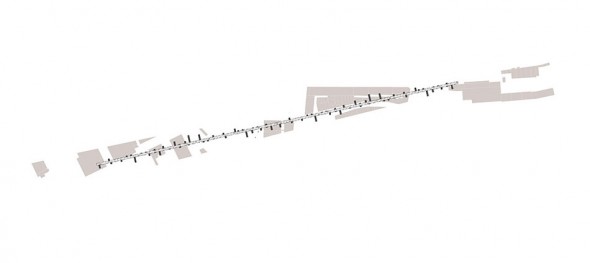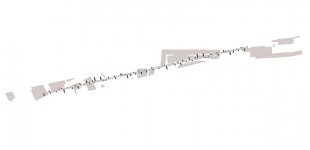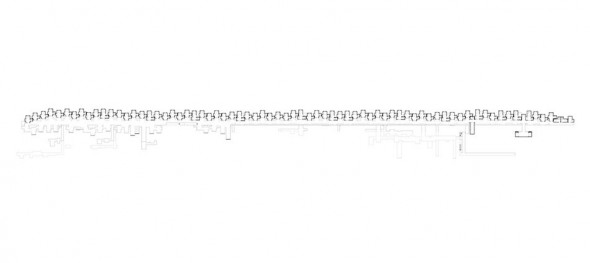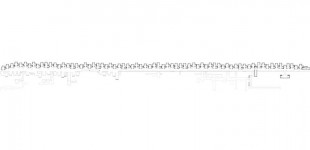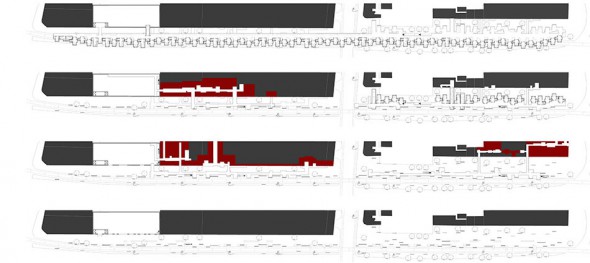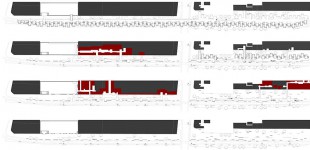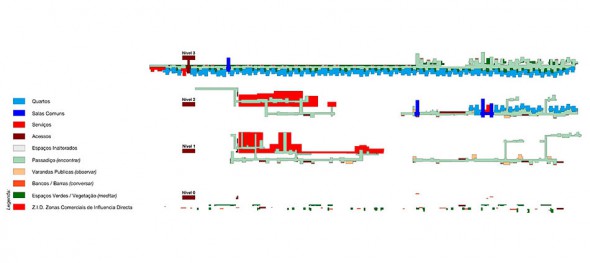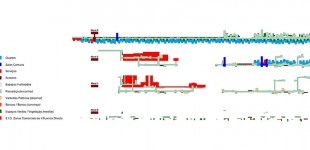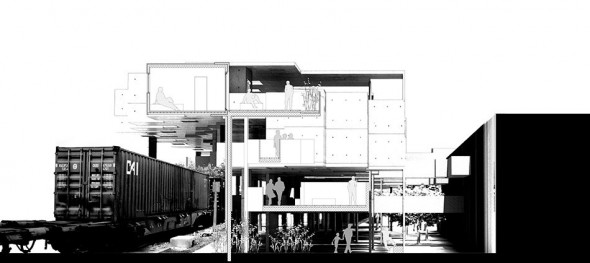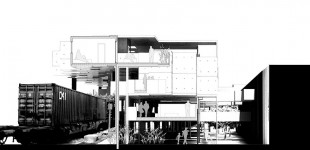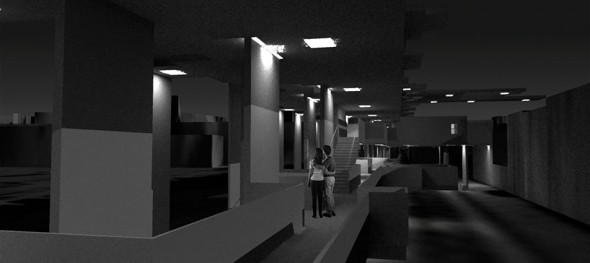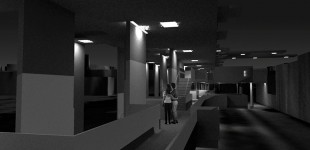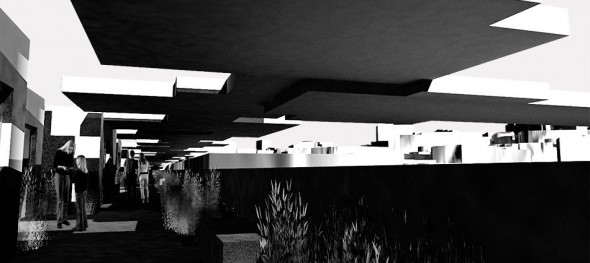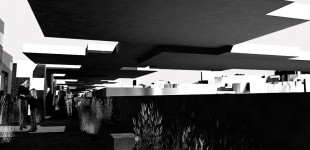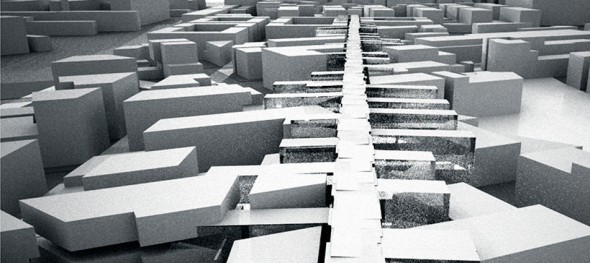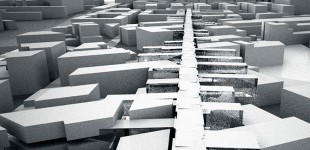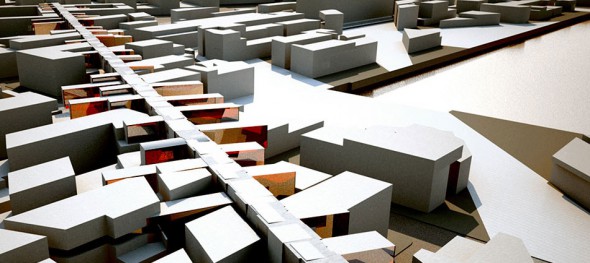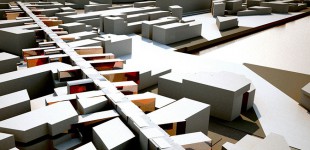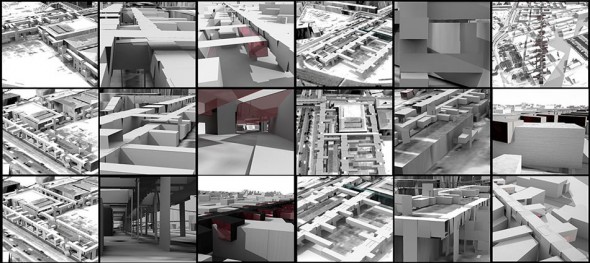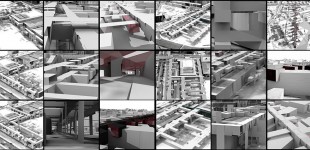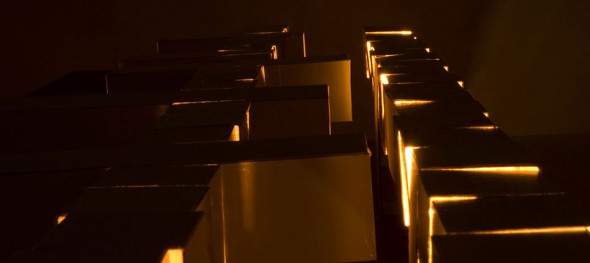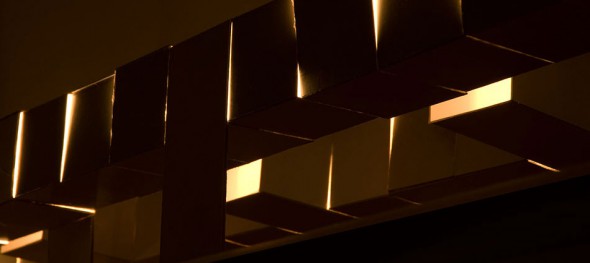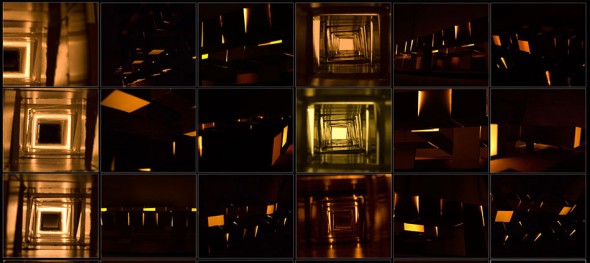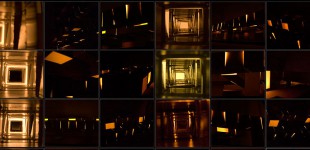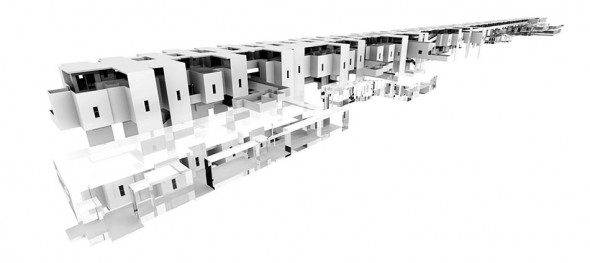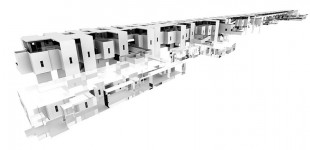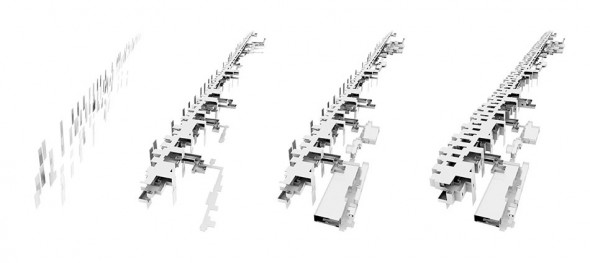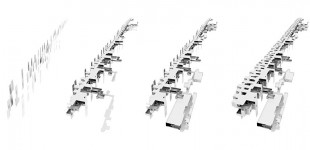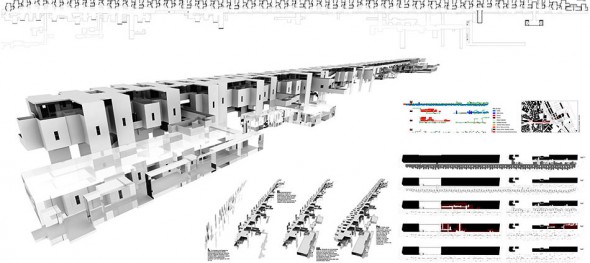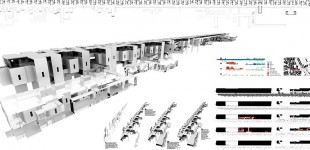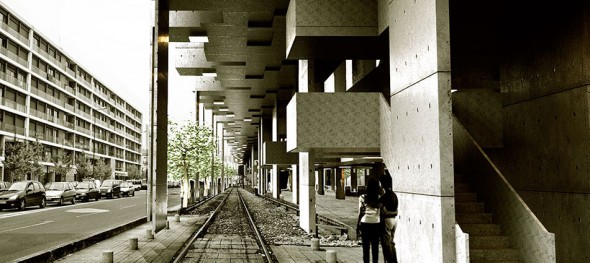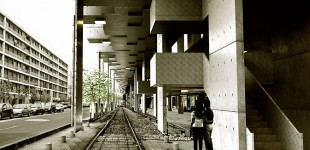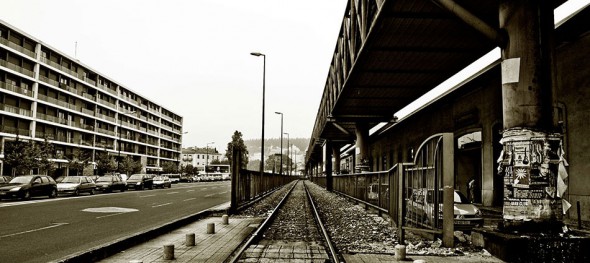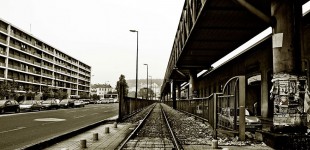| Title | IdHotel |
| Year | 2007 |
| Location | Lisbon |
| Brief | Hotel and urban requalification |
| Notes | Selected for “Secil Universidades 2007” competition |
In this project for a two-star hotel in Alcântara, a straightforward substitution of an existing pedestrian bridge for a hotel and urban system of connections and re-qualification is proposed. A hotel can be seen as a study on identity within urban space. The existing social complexities of major cities (multiple identities, nationalities, religions, groups, temporalities) present themselves in hotels within a much smaller scale, both in space and in time.
¶ The hotel has always been the stage of multiple identities and multi-national relations, but it is also the most foreign and alien home for those who inhabit it. In this project the hotel is seen as a potential device to preserve, display, and redistribute multiple identities into the centre of Alcântara. The proposal expands on the concept of perpetual movement and transit already present within its travelling guests, channelling the energy of travellers into a requirement of use and dwelling in both the hotel space, and the city. With this channelled and subsequently redistributed movement, a confrontation of both the city and the multiple identities of the hotel guests is effected.
¶ Within this game of multiple identities two principle fields co-exist: externally, the urban consequences of a relationship between ephemeral identities (guests) and permanent identities (neighbourhood); internally, the consequences of identity games and multiple fluctuating cultures typical of a short-stay hotel. Parasitical and viral elements converging towards an infiltration of abandoned spaces, the concept of the architectural user as an urban explorer, and the use of localized strategies within an area of dynamic and uncertain futures engender a structure that believes in Alcântara’s potential as a centre of social energy.
¶ Process:
(i) A forest of pillars and reinforced concrete structures is proposed along the sides of the Alcântara Terra – Alcântara Mar rail line, hence substituting the old and incomplete pedestrian bridge with a street level link.
(ii) Subsequently, the construction of platforms connecting diverse elements of an abandoned industrial area is proposed: a re-qualification of a long-forgotten area of Lisbon.
(iii) Through the viral properties of the structure, the platforms grow into abandoned buildings and spaces – creating the D.I.Z. – Direct Influence Zones: spaces that become re-opened to the public and consequently free to undergo a natural re-qualification.
(iv) The hotel is hence born at the end of this process – a natural extension of the pillars and platforms that are little more than a succession of folds generating a new habitat; where public, private, commercial, and rest areas intersect and influence each other.


